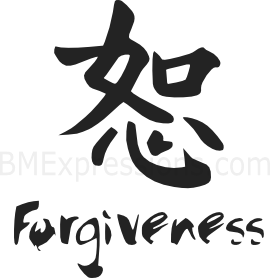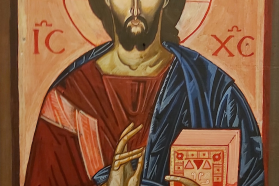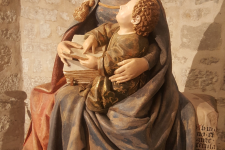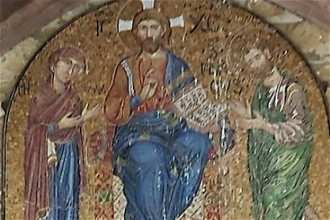Sunday Reflection with Fr Robin Gibbons - September 13 2020

Twenty-fourth Sunday in Ordinary Time
William Blake's poem, 'The Poison Tree' exactly suits my own angry responses, having been taught, mainly by religious figures, to keep my anger in check, like the poet the resentment of having to shut up, put up, and overlook others' wrong doing doesn't always resolve the issue, in fact it can make it so much more worse so the opening verse is so prescient:
I was angry with my friend;
I told my wrath, my wrath did end.
I was angry with my foe:
I told it not, my wrath did grow.
The antidote is there in that first two lines, anger when acknowledged can be dealt with, maybe it doesn't go away but it can be spread thinly so as not to cause too much damage. There is something very unpleasant and also fearful about 'angry' people, and we have a lot of public figures, even in Church, who express their anger publicly and often humiliate those unable to respond, the sheer volume of angry people on the social media is also staggering, particularly those who have very entrenched views. Is there any good to being angry? Maybe, but only in a broad sense! The good that anger can be is simply a tool to move things on, shift a problem, confront an injustice, for righteous anger is an expression of inverted love, I can be angry because it really matters.
Yet we justify anger by placing it as an emotion attributable to the Most high, here is part of our reading from the Book of Sirach:
'The vengeful will face the Lord's vengeance;
indeed he remembers their sins in detail'. (Sir 28:1)
All well and good if we assume God is on our side, but what about that comments if the focus is on us? I understand my sins are remembered, but I certainly don't want them dragged up time and time again, especially if I have acknowledged them. There is way too much of this digging up old dirt these days, so what about forgiveness? Does that help sort out anger? Yes, the next two verses say it for us:
'Forgive your neighbour the wrong done to you;
then when you pray, your own sins will be forgiven.
Does anyone nourish anger against another
and expect healing from the LORD?" (Sir 28:2,3)'
Jesus hammers home this meaning in the Gospel for this Sunday, it revolves around our true intentions, few of us are free from anger's grip, but we can do something about it, we can be the ones who do not let it dominate or rule our own and other's lives. There is an antidote in forgiveness and a forgiving heart that has to be like the Holy One, forgiving without end, love and mercy pouring out mercy unendingly. This is why Jesus replies to Peter's question about forgiveness with a singularly repetitive phrase, not seven times do you forgive the same person but seventy-seven and beyond! To understand this just remind yourself that this is you being forgiven your stupid behaviour over and over and over again. Who has the patience? "I say to you, not seven times but seventy-seven times."(Mt 18:22) The rather frightening answer, because it involves, effort, hardship and the discipline of true love, above all it means we have to be really honest with ourselves and show compassion, forgiveness from the heart.
We do not want to be like the person in The Poison Tree, who resenting and brooding creates an apple watered by anger, deceit and hate that leads to the death of his foe:
"And into my garden stole,
When the night had veiled the pole;
In the morning glad I see;
My foe outstretched beneath the tree."
That must not be us, for if it is, these words of Jesus should give us cause to think hard:
"So will my heavenly Father do to you, unless each of you forgives his brother/sister from his heart." (Mt 18: 35)
Lectio
From the Desert Fathers
A brother asked Abba Poemen, "What does it mean to get angry at one's brother without cause?" And he replied: "When your brother attacks you, whatever the insults are, if you get angry at him, you are getting angry without cause. Even if he were to pull out your right eye, and to cut off your right hand, if you get angry at him, you are getting angry without cause. Yet if he were to try to take you away from God, then get angry!"
A brother asked Abba Poemen, "If I see my brother sin, is it right to say nothing about it?" The old man replied, "Whenever we cover our brother's sin, God will cover ours; whenever we tell people about our brother's guilt, God will do the same about ours."
The Poison Tree
by William Blake
I was angry with my friend;
I told my wrath, my wrath did end.
I was angry with my foe:
I told it not, my wrath did grow.
And I watered it in fears,
Night & morning with my tears:
And I sunned it with smiles,
And with soft deceitful wiles.
And it grew both day and night.
Till it bore an apple bright.
And my foe beheld it shine,
And he knew that it was mine.
And into my garden stole,
When the night had veiled the pole;
In the morning glad I see;
My foe outstretched beneath the tree.
Fr Robin is an Eastern Rite Catholic Chaplain for Melkites in the UK. He is also an Ecumenical Canon of Christ Church Cathedral, Oxford. You can follow him on Twitter: @RobinGibbons2


















